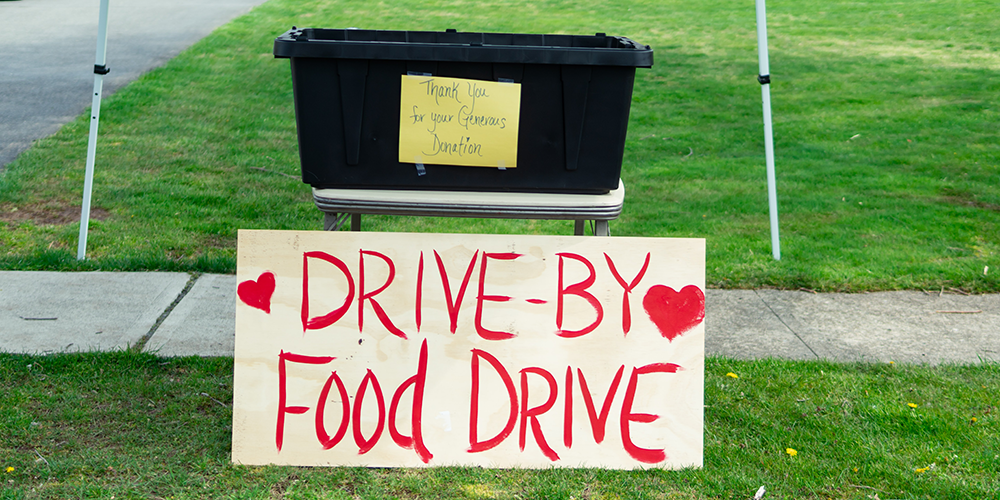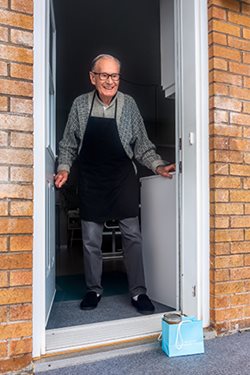
3 volunteering guidelines to heed during the coronavirus pandemic
Lending a hand is a big U.S. tradition. More than 77.4 million Americans volunteered in 2019, completing 6.9 billion hours of service worth an estimated US$167 billion.
Today, no matter how well-intentioned, there’s a risk that those helping hands could have the unfortunate consequence of causing more people to get COVID-19. And sadly, those most in need of help are often those who would be hit the hardest should they become infected because low-income people tend to have more health problems than others.
What, then, should people do when they want to help? As a scholar of nonprofit management and how people support causes, I would like to offer a few suggestions.
1. Give money
Many social-service nonprofits are experiencing a dramatic increase in demand. This includes everything from community clinics to youth centers, food pantries and agencies addressing domestic violence to groups that care for the homeless. At the same time, history suggests that many of these same nonprofits are likely to see their donations plummet due to the economic downturn underway, making any dollar you can spare count more than ever.
You need not ignore the general guidance to avoid extra trips to the grocery store or needlessly getting too close to strangers to do your share. That’s because cash donations to food pantries go further than directly donated items such as canned beans or boxed noodles.
Funds you provide to community organizations will help ensure they have the cash to meet their burgeoning needs now, or to reopen their doors later – depending on the situation. Theaters, operas and dance companies have had to cancel performances. Museums and zoos will be spending weeks closed. Shutting down is choking off revenue streams from ticket sales, gift shop proceeds and cafeteria operations they usually rely on. If you previously paid for upcoming performances or visits, you can do your share to support those institutions by not seeking refunds. Once this pandemic ends, won’t you want to be able to explore your favorite local zoo or museum or to experience live performances again?
2. Volunteer virtually
Many organizations use virtual volunteers. Depending on your skills, you could pitch in by helping boost an organization’s profile through Facebook and other social media platforms, upgrading their website, organizing an online fundraiser, coordinating the shipment of supplies directly to the nonprofit, and more.
But be sure to reach out before you act. Managing volunteers requires staff time, which many organizations lack. Other organizations may be ready and waiting for your help.

3. Check in before dropping by

Likewise, it’s best to call or email your neighbors before you drop by to see how they are doing. Ask what, if anything, they need in advance. If they’re running low on toilet paper, soap, rice or other basic supplies, consider placing an online order to be delivered to their door. You do not have to be the only one caring for the people in your life. The “mutual aid” groups popping up all over the country for this purpose can be both a great resource for those in need and a great way to channel the desire to help.
If you realize that someone needs a hot meal, don’t just make them a casserole – even if that thoughtful gesture is one you might have made during ordinary times. If you can afford it, consider placing an order with their favorite restaurant when delivery service is available because you will be both protecting the neighbor from unnecessary contact and, also, supporting local businesses. If they need in-person help, take care to respect all social-distancing protocols.
This article is republished from The Conversation under a Creative Commons license. Read the original article.
Enjoy reading ASBMB Today?
Become a member to receive the print edition four times a year and the digital edition monthly.
Learn moreGet the latest from ASBMB Today
Enter your email address, and we’ll send you a weekly email with recent articles, interviews and more.
Latest in Opinions
Opinions highlights or most popular articles

Women’s health cannot leave rare diseases behind
A physician living with lymphangioleiomyomatosis and a basic scientist explain why patient-driven, trial-ready research is essential to turning momentum into meaningful progress.

Making my spicy brain work for me
Researcher Reid Blanchett reflects on her journey navigating mental health struggles through graduate school. She found a new path in bioinformatics, proving that science can be flexible, forgiving and full of second chances.

The tortoise wins: How slowing down saved my Ph.D.
Graduate student Amy Bounds reflects on how slowing down in the lab not only improved her relationship with work but also made her a more productive scientist.

How pediatric cataracts shaped my scientific journey
Undergraduate student Grace Jones shares how she transformed her childhood cataract diagnosis into a scientific purpose. She explores how biochemistry can bring a clearer vision to others, and how personal history can shape discovery.

Debugging my code and teaching with ChatGPT
AI tools like ChatGPT have changed the way an assistant professor teaches and does research. But, he asserts that real growth still comes from struggle, and educators must help students use AI wisely — as scaffolds, not shortcuts.

AI in the lab: The power of smarter questions
An assistant professor discusses AI's evolution from a buzzword to a trusted research partner. It helps streamline reviews, troubleshoot code, save time and spark ideas, but its success relies on combining AI with expertise and critical thinking.

